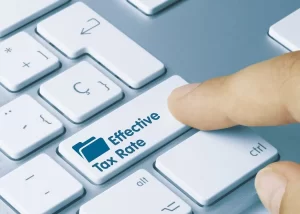Tax Deductions – What Types of Tax Deductions Are Available to You?

When preparing for your tax return, you should know which tax deductions are available to you. There are two main types of tax deductions: itemized deductions and standard deductions. Itemized deductions require more recordkeeping and math while standard deductions are based on your age and filing status. Standard deductions are often larger than itemized deductions.
Tax deductions reduce taxable income. For example, a $100 deduction can lower your taxes by up to $4,000 for a single taxpayer. In a 22% tax bracket, this would reduce taxes by $880. In addition to tax deductions, there are also many other types of tax credits that can help you reduce your taxes.
Deductions for charitable gifts, mortgage interest, student loan interest, and medical expenses are common examples of deductible expenses. You can also deduct certain business-related costs, such as those for paying bills. It’s best to itemize your deductions if you can, but remember that you’ll need proof of your exemptions to deduct them.
You can also take advantage of tax deductions on your state taxes. A state tax agency can help you find the deductions you’re entitled to. Using tax preparation software is another way to find out which deductions apply to you. For example, if you’re an employee, you may be able to deduct payroll taxes and qualified health and retirement plans. Note that these rules change from year to year based on changes in federal tax law.
In addition to the standard deduction, you may also qualify for a pass-through deduction. This deduction is available for individuals and businesses who do not itemize their taxes. The pass-through deduction will last for two years, so make sure you qualify for it. If you’re an independent contractor, you can deduct some expenses related to the business. You can also deduct the cost of hiring bookkeepers or custodians.
Tax deductions can be very helpful when you’re trying to lower your income. These can be useful for paying for a new home or saving money for retirement. These deductions will lower your taxable income and lower your tax bill. There are several ways to utilize these deductions and credits and it’s best to seek advice from a tax professional if you’re not sure which tax options are right for you.
You should also collect all of the appropriate paperwork when applying for these deductions. For example, Form 1098 is required if you’re eligible to take mortgage interest rate deductions. For other deductions, you should keep records of expenses and contributions you made. The amount of money you save by itemizing deductions will depend on which of these two options you choose.
One common deduction that small business owners can take is the home office deduction. This is applicable to businesses that have a home office, and if they are the principal place of business, then you can deduct expenses related to administrative tasks and activities. The home office can be part of your home or a separate building. In addition, you can deduct the cost of Uber and taxi fares. In addition, the home office deduction includes meals provided to employees.








